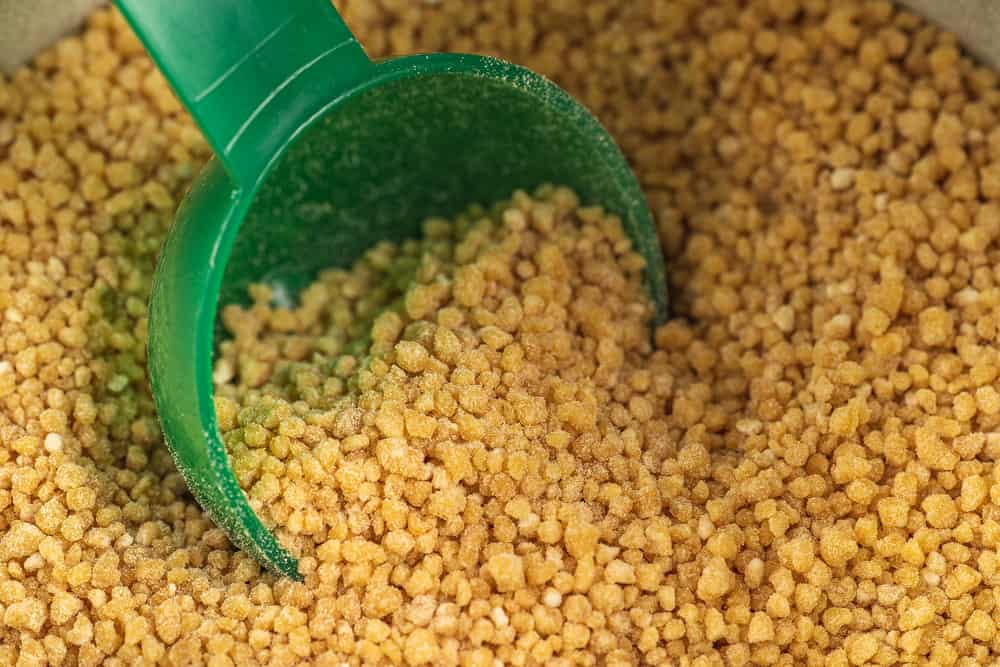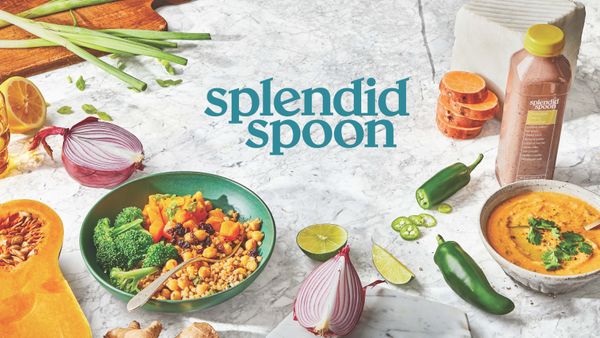The name may give it away, but still, people want to know if soy lecithin is vegan? The answer is that this popular additive is indeed plant-based, and fine to consume.
Because we all want to know more about the ingredients we see on the label of our food, especially when it is processed. We’re going to take a closer look to see where it is often found in foods, and what it is used in place of.
What Is Soy Lecithin?
With many different types of lecithin, it is important to know where the soy version came from. First of all, we should note that lecithin is a broad term that encompasses a group of fatty compounds. They include glycerol, glycolipids, fatty acids, choline, phosphoric acid, and triglycerides.
Since some of the variants of these can be made from animal-derived ingredients, it is important to know more.
Found in the tissues of both animals and plants, they can also be derived from soybeans, rapeseed, milk, cottonseed, and sunflower seeds.
Soy lecithin is one of the most commonly used, and a favorite for a vegan diet.
What Is Soy Lecithin Used For?
Its most common use in foods is as an emulsifier. This is how food producers ensure oil and water do not mix, and it helps to create a desirable consistency.
Egg lecithin is used in mayonnaise and a common vegan substitute is tofu or a plant-based ingredient with a similar texture. To ensure fats mix properly with the dough, it is often used in baking and can also be used as a thickener.
Any food manufacturer that needs to maintain a smooth consistency in their product will likely need some form of emulsifier.
Why Is Soy Lecithin Non Vegan?
There are a couple of reasons why this could be considered a controversial ingredient. It all depends on how strictly you follow a vegan diet, but the most common issues a vegan will have include the following:
Deforestation
Soy that is grown outside of the US and EU can often be harvested on land that used to belong to the rainforest. The destruction of a natural habitat means many animals will either be displaced or die.
Deforestation is among the worst issues in the world from a vegan perspective. It is not only detrimental to all animals but all living beings. Any soybeans that are grown on deforested land are not vegan.
GMO Soy
Most of the soy in the world is derived from GMO soybeans. The following five concerns were raised as part of two reports:
Potential harm to human health; potential damage to the environment; negative impact on traditional farming practice; excessive corporate dominance;
Potential damage to the environment is always a concern from a vegan viewpoint, and since there is a high level of pesticides in GMO food production, it is always good to know where the soybeans are derived from. However, this is especially difficult, unless the product is completely organic.
How Is Soy Lecithin Labelled?
This is what a vegan will need to be mindful of, lecithin comes in many forms. Thankfully, manufacturers are realizing that people want to know exactly what their food is made from, especially those will allergies, and anyone following a vegan lifestyle.
Also, because soy is an allergenic ingredient, strict guidelines should be followed to ensure it is labeled correctly. The most common terms used to label soy lecithin are as follows:
- Soy lecithin
- Lecithin (from soy)
- Lecithin (derived from soya)
Vegan Alternative
Because of the way GMO food is produced, it can’t always be considered vegan friendly. Over 80% of the world’s soy is thought to be made using GMO methods, so there must be an alternative to be considered vegan-friendly.
The best way to ensure you are getting ethical soy lecithin is by purchasing from organic producers. This means soy that has not been contaminated by toxic chemicals and farmed without GMOs.
This is better for a sustainable environment, but also for your health.
Is Soy Lecithin Safe?
It has been approved by the FDA and labeled as safe for human and animal consumption. Although some are allergic, it is generally fine for consumption.
On top of that, it is being looked into for its health benefits and is commonly used in health supplements.
Some studies show Lecithin’s benefit as reducing low-density cholesterol, without reducing the good cholesterol (high-density). Lecithin supplementation given to patients with high cholesterol showed a reduction in low-density cholesterol after a month of supplementation.
Final Word
It can be difficult to tell what type of lecithin certain foods contain but companies are getting better at labeling.
One thing for sure is that organic soy lecithin is vegan, although if it is not organic, it can be difficult to tell if it is ethically sourced or not. Opt for non-GMO soy lecithin where you can.



